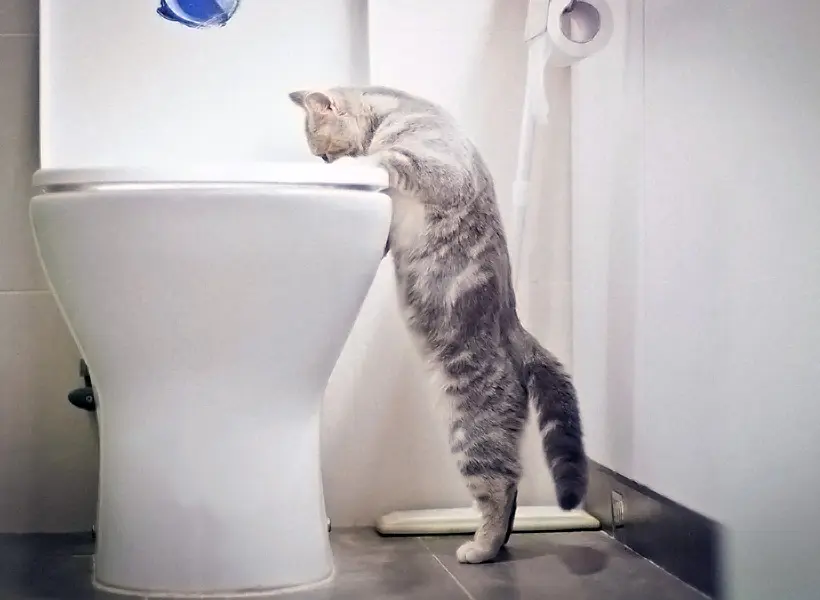The Dangers of Flushing Cat Poop Down Your Toilet - Tips for Safer Disposal
The Dangers of Flushing Cat Poop Down Your Toilet - Tips for Safer Disposal
Blog Article
Almost everyone will have their own individual assumption with regards to Don’t flush cat feces down the toilet.

Intro
As cat owners, it's vital to be mindful of exactly how we deal with our feline buddies' waste. While it might appear convenient to flush pet cat poop down the bathroom, this practice can have harmful effects for both the atmosphere and human health.
Ecological Impact
Flushing feline poop introduces damaging virus and parasites into the water, positioning a significant risk to aquatic environments. These impurities can adversely affect marine life and compromise water top quality.
Health Risks
In addition to environmental worries, flushing feline waste can also posture wellness risks to people. Pet cat feces might include Toxoplasma gondii, a parasite that can trigger toxoplasmosis-- a possibly extreme ailment, particularly for pregnant women and individuals with weakened immune systems.
Alternatives to Flushing
Thankfully, there are more secure and extra responsible means to throw away feline poop. Take into consideration the following alternatives:
1. Scoop and Dispose in Trash
The most usual method of dealing with feline poop is to scoop it into a biodegradable bag and toss it in the garbage. Make certain to make use of a committed clutter scoop and throw away the waste quickly.
2. Usage Biodegradable Litter
Opt for eco-friendly cat trash made from products such as corn or wheat. These litters are environmentally friendly and can be securely taken care of in the trash.
3. Bury in the Yard
If you have a yard, consider burying pet cat waste in an assigned location away from veggie yards and water sources. Be sure to dig deep sufficient to avoid contamination of groundwater.
4. Set Up a Pet Waste Disposal System
Purchase a pet waste disposal system particularly developed for feline waste. These systems utilize enzymes to break down the waste, minimizing smell and ecological effect.
Final thought
Accountable animal ownership extends beyond giving food and sanctuary-- it additionally includes appropriate waste management. By avoiding purging feline poop down the toilet and opting for different disposal techniques, we can reduce our ecological impact and safeguard human wellness.
Why Can’t I Flush Cat Poop?
It Spreads a Parasite
Cats are frequently infected with a parasite called toxoplasma gondii. The parasite causes an infection called toxoplasmosis. It is usually harmless to cats. The parasite only uses cat poop as a host for its eggs. Otherwise, the cat’s immune system usually keeps the infection at low enough levels to maintain its own health. But it does not stop the develop of eggs. These eggs are tiny and surprisingly tough. They may survive for a year before they begin to grow. But that’s the problem.
Our wastewater system is not designed to deal with toxoplasmosis eggs. Instead, most eggs will flush from your toilet into sewers and wastewater management plants. After the sewage is treated for many other harmful things in it, it is typically released into local rivers, lakes, or oceans. Here, the toxoplasmosis eggs can find new hosts, including starfish, crabs, otters, and many other wildlife. For many, this is a significant risk to their health. Toxoplasmosis can also end up infecting water sources that are important for agriculture, which means our deer, pigs, and sheep can get infected too.
Is There Risk to Humans?
There can be a risk to human life from flushing cat poop down the toilet. If you do so, the parasites from your cat’s poop can end up in shellfish, game animals, or livestock. If this meat is then served raw or undercooked, the people who eat it can get sick.
In fact, according to the CDC, 40 million people in the United States are infected with toxoplasma gondii. They get it from exposure to infected seafood, or from some kind of cat poop contamination, like drinking from a stream that is contaminated or touching anything that has come into contact with cat poop. That includes just cleaning a cat litter box.
Most people who get infected with these parasites will not develop any symptoms. However, for pregnant women or for those with compromised immune systems, the parasite can cause severe health problems.
How to Handle Cat Poop
The best way to handle cat poop is actually to clean the box more often. The eggs that the parasite sheds will not become active until one to five days after the cat poops. That means that if you clean daily, you’re much less likely to come into direct contact with infectious eggs.
That said, always dispose of cat poop in the garbage and not down the toilet. Wash your hands before and after you clean the litter box, and bring the bag of poop right outside to your garbage bins.
https://trenchlesssolutionsusa.com/why-cant-i-flush-cat-poop/

We were shown that article about Don’t flush cat feces down the toilet through an acquaintance on a different web address. Sharing is nice. Helping people is fun. I value reading our article about How to Dispose of Cat Poop and Litter Without Plastic Bags.
Book Instantly Report this page